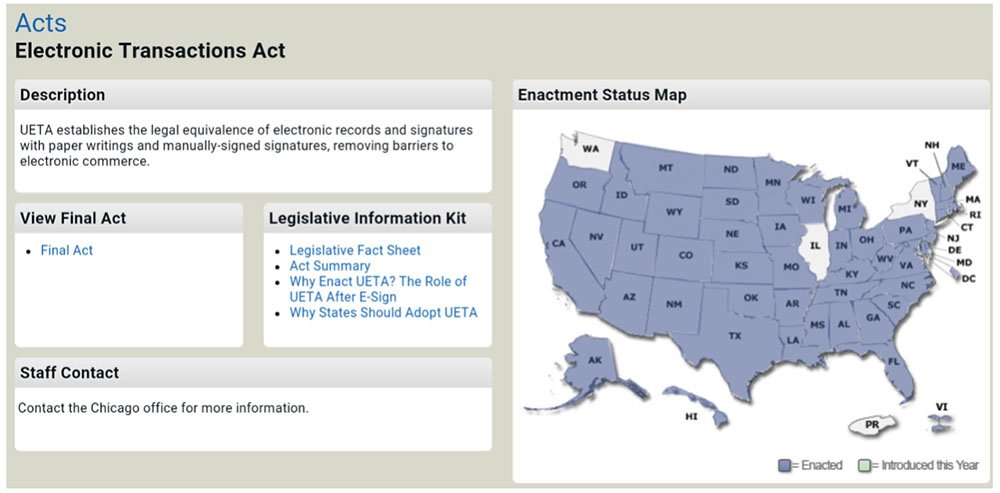

The act will also address recognition of electronic wills executed under the law of another state. These rules regulate the format, use, and retention of electronic records and signatures generated, sent, communicated, received, or stored by the Oklahoma Health Care Authority (OHCA), in conformity with the Uniform Electronic Transaction Act, found at Section 15-101 et seq. States will have the option to include language that allows remote witnessing. Under the new Electronic Wills Act, the testator’s electronic signature must be witnessed contemporaneously (or notarized contemporaneously in states that allow notarized wills). But UETA and E-SIGN both contain an express exception for wills, which, because the testator is deceased at the time the document must be interpreted, are subject to special execution requirements to ensure validity and must still be executed on paper in most states. Since 2000 the Uniform Electronic Transactions Act (UETA) and a similar federal law, E-SIGN have provided that a transaction is not invalid solely because the terms of the contract are in an electronic format. Most documents that were traditionally printed on paper can now be created, transferred, signed, and recorded in electronic form. The Uniform Electronic Wills Act permits testators to execute an electronic will and allows probate courts to give electronic wills legal effect.

The new act was drafted to complement UEWA and could be adopted by a state simultaneously with that act to comprehensively authorize the electronic execution of wills, trusts, powers of attorney, and several other types of common estate planning documents. The Uniform Electronic Estate Planning Documents Act clarifies that these documents may also be executed in electronic form. However, trusts, powers of attorney, and some other types of estate planning documents fell into a legal grey area where the law governing electronic execution was ambiguous. The Uniform Electronic Wills Act (UEWA) authorizes the testator of a will and witnesses to execute a will in electronic form. The Uniform Electronic Transactions Act (UETA) authorizes the electronic execution of bilateral contracts if the parties to a transaction agree. This new act will fill a gap in the law regarding the execution of certain estate planning documents, including trusts and powers of attorney.


 0 kommentar(er)
0 kommentar(er)
